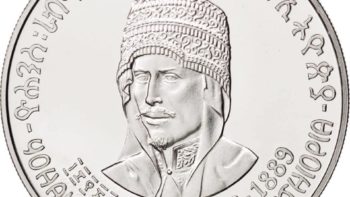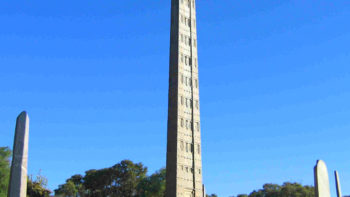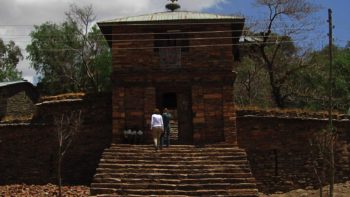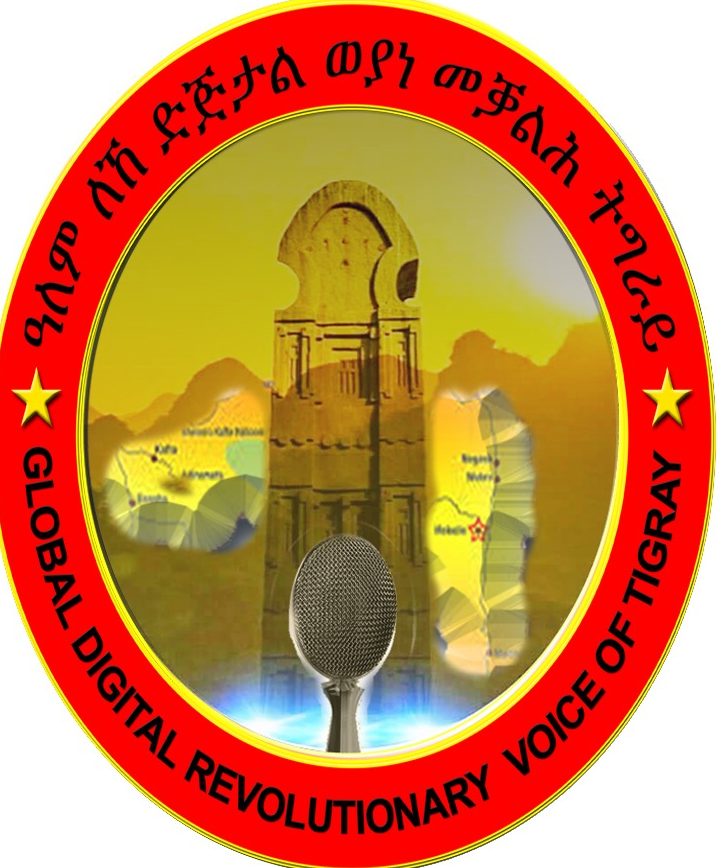Yohannes IV
When Tewodros (emperor
from 1855 to 1868) died in 1868, three men emerged hoping to become the next
emperor: Wagshum Gobaze Gebre Medhen of Lasta, King Menelik II of Shewa, and
Dajazmach Kassa Mercha of Tigray. Wagshum Gobaze was the ruler of Amhara, Wag,
and Lasta (Pankhurst, R. 1998, 162). When Tewodros was killed, Gobaze occupied
Gondar and crowned himself Emperor Tekle Giyorgis II. No one took his
coronation seriously because there was no abun (Prouty, C. and Rosenfeld, E.
1982, 169). The second aspiring man, Menelik, became prominent once he escaped
from Tewodros’ imprisonment in 1865. After his escape, with the support of
family and friends, he became the ruler of the province of Shewa. But it was
the third man, the one who wanted the title the least, who became the next true
leader of Ethiopia.
The first major
opposition the emperor faced was the expansionist Egyptians, who were highly
interested in spreading their territory further south. The Sultan of the
Ottoman Empire had ceded Massawa to the Egyptians in 1867. The Egyptians also
had control of most of northern Sudan (Henze, P. 2000, 146-7). In 1874, an
Egyptian army captured the Ethiopian cities of Bogos and Keren, both near the
Sudanese border. The Egyptians had also occupied the port of Zula and all ports
south of the Massawa, establishing an embargo preventing import of weapons into
Ethiopia (Marcus 2002, 73-4). In 1875, the Egyptians took Harar. Yohannes had
tried to appeal to European leaders but was completely ignored because Egypt
was economically superior (Henze, P. 2000, 147).
After Yohannes’
peaceful attempts to resolve the situation failed, he declared war on the
Egyptians on 23 October 1875. In November 1875, the Egyptian army met Yohannes’
well-prepared troops at Gundat. The Egyptian army lost one-third of its men,
including their commander. The Egyptians returned 4 months latter with a
better-equipped army, numbering 15,000 – 20,000 (Henze, P. 2000, 147-8). The
three-day battle in March of 1876 in Gura left all but 500 Egyptians dead,
wounded, or captured. Yohannes was also able to confiscate “12,000-13,000
Remington rifles, sixteen cannons, munitions, and other … booty.” (Marcus, H
2002, 75).
In the following
years, both countries attempted to come to a diplomatic solution. Nothing came
out of it for Ethiopia’s demands, that Egypt unoccupy land belonging to
Ethiopia, was unacceptable to the Egyptians. At the same time, Egypt was
breaking apart internally and in northern Sudan, which had been part of
Egyptian territory, a Muslim Mahdist movement had broken out and replaced
Egyptian authority as well as emerge as a threat to Ethiopia. The British came
to Egypt’s defense in 1884 and made an arrangement between the three countries
and a treaty was arranged, know as the Adwa (or Hewett) Peace Treaty. According
to the treaty, Egypt would give back Ethiopian lands if Ethiopia assisted in
the evacuation of Egyptian troops out of Sudan. After Ethiopia had carried out
its part, Ethiopia was able to regain all former land except for its ports.
(Zewde, B. 2001, 54-5).
With Egypt being in a
such a weak position and Ethiopia not yet being strong enough to face a
European power in war, the British were very concerned of French intentions in
the Horn of Africa, for the French were already settled nearby in Tajura (in
modern day Djibouti). The British figured that the best way to keep the French
in check was to have a large presence in Ethiopia (Marcus, H. 2002, 82-3). So in
early 1885, the British had convinced the Italians, a British alley, to take
over Massawa. In doing so, it will soon be shown what the British had done
towards Ethiopia was to take ‘one weak enemy [Egypt] for two strong ones, the
Mahdist state and Italy.’ (Sven Rubenson qtd in Zewde, B. 2001, 55)
One of the first
things that the Italians did in Massawa was to stop the import of weapons into
Ethiopia from the Red Sea. By 1886, they were starting to penetrate into
Ethiopian territory. They occupied two cities near Massawa, Saati and Wia,
which according to the Adwa Peace Treaty, had been decided was part of
Ethiopian territory. The following year, Ras Alula, the emperor’s chief
commander, attacked the Italians and chased them away from the two cities (Pankhurst,
R. 1998, 171-2). The Italians did not take this blow served by the Ethiopians
lightly:
“The call for revenge
was heard in the streets [of Italy] as well as in the government chambers. [The
Italian] Parliament voted for an appropriation of 20 million lire for the
defense of Massawa and its environs. A special force of 5,000 men was organized
to reinforce the existing troops. Roads and bridges were built and repaired in
an effort to strengthen the infrastructure for the future military action.
Simultaneously, the policy of instigating Menelik to act against Yohannes was
intensified.” (Zewde, B. 2001, 57)
Both countries called
upon Britain as an arbitrator, both believing they were in the right. The
British needed Italy to counter French threat and thus proposed that Italy be
allowed to occupy Saati and Wia. The British also proposed that Yohannes should
publicly apologize to the Italians. A very angry Yohannes took some 80,000 men
to Saati for once and all to finish the issue with the Italians. However, the
Italians refused to come out of their fort to fight. Yohannes had no choice but
to retreat because he was running out of food and supplies (Pankhurst, R. 1998,
172-3).
Both countries called
upon Britain as an arbitrator, both believing they were in the right. The
British needed Italy to counter French threat and thus proposed that Italy be
allowed to occupy Saati and Wia. The British also proposed that Yohannes should
publicly apologize to the Italians. A very angry Yohannes took some 80,000 men
to Saati for once and all to finish the issue with the Italians. However, the
Italians refused to come out of their fort to fight. Yohannes had no choice but
to retreat because he was running out of food and supplies (Pankhurst, R. 1998,
172-3).
When Yohannes has signed
the Adwa Peace Treaty to take back his land, the price to pay seemed small:
assist in the evacuation of Egyptian troops out of Mahdist Muslim dominated
area of Sudan. But now that Egypt did not have control of Sudan, the Mahdist
Muslims were prepared to make Ethiopia punish for her interference. They began
by attacking the western frontiers of Gojjam and Begemder. At the time, the
emperor was preoccupied with the Italians at Saati and couldn’t be of any
assistance. So it fell upon Tekle Haymanot, the ruler of Gojjam, to lead
Ethiopia without the assistance of the emperor. Unfortunately, he was no match
against the Mahdist Muslims and they inflicted heavy loses upon his army. He
could not do anything as they marched on Gondar in 1888 and burned the city
down. The Mahdist Muslim threat was temporarily suspended only once the emperor
had called upon Menelik to defend Gojjam and Begemder. When Menelik was
returning to Shewa after his campaigns in Begemder and Gojjam, him and Tekle
Haymanot, who had been rivals beforehand, forged an agreement to work together
against the emperor.
Yohannes with royal
crown and staff (Pankhurst, R. 1998, 167).
When Yohannes returned
from his unsuccessful campaign in Saati, he invaded and ravaged Gojjam for
Tekle Haymanot’s rebellious intentions (Henze, P. 2000, 158-9). After the
ravage of Gojjam, Yohannes won back Tekle Haymanot’s loyalty and was preparing
to attack Menelik in Shewa. Meanwhile, Menelik has made an arrangement with the
Italians for a double attack on Yohannes. The Italians were going to attack
from Massawa and Menelik from Shewa. The Italians has supplied Menelik with
enough weapons to assure victory. But as it happened, the match between
Yohannes and Menelik never occurred for once again when the Mahdist Muslims began
to attack Begemder, the emperor abandoned his plans on attacking Menelik and
ran off to face the Mahdist Muslims (Marcus, H. 2002, 86-7). This combat with
the Mahdist Muslims, know as the Battle of Matamma, was to be Yohannes’ last:
“..on 9 March [1889]
when the battle opened, it appeared as if God favored the Ethiopians. The
emperor and his command breached the center of the Mahdist lines and surged
forward toward victory until Yohannes was shot, first in the right hand, and
then, as he again advanced, by a bullet that lodged mortally in his chest. The
Christians wavered and then broke, giving an undeserved triumph to the Muslims.
With his dying breaths, Yohannes declared his natural son, Dej. Mengesha,
heir…On 25 March 1889, when Menelik learned about the tragedy at Metema, he
immediately proclaimed himself negus negast, king of kings.” (Marcus, H. 2002,
87-9).






